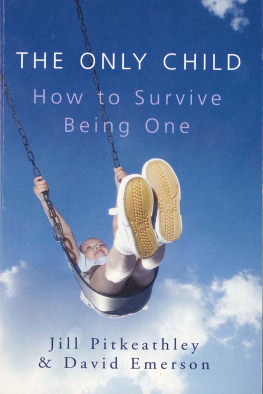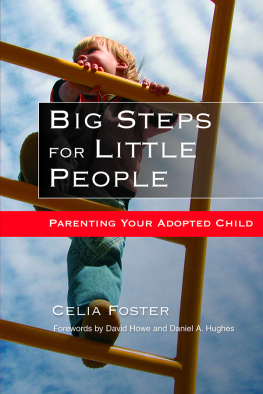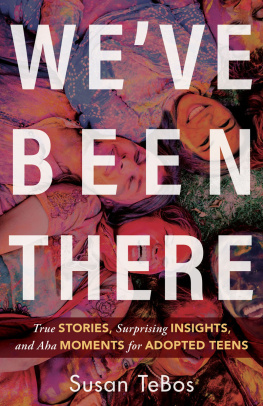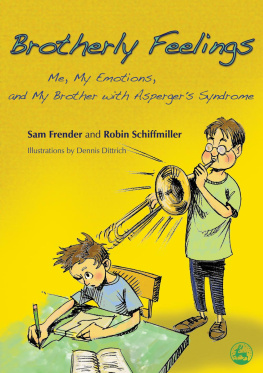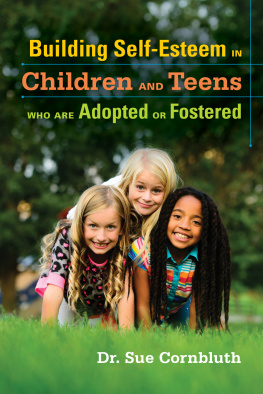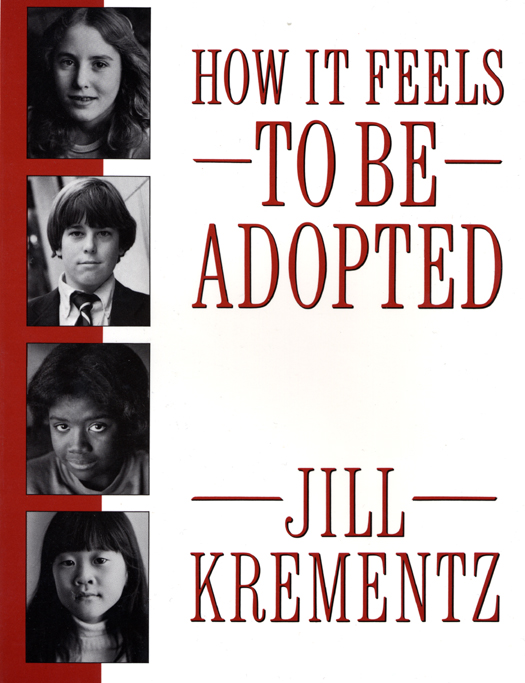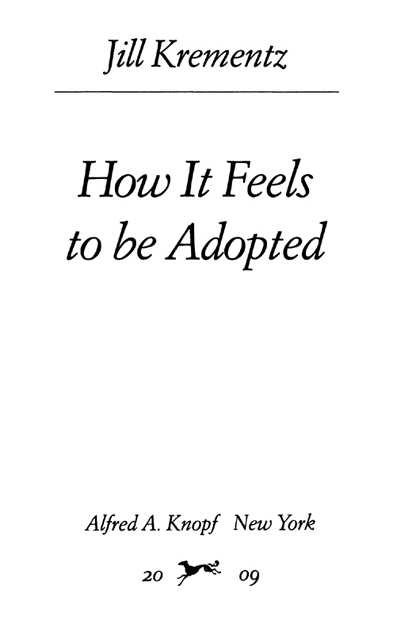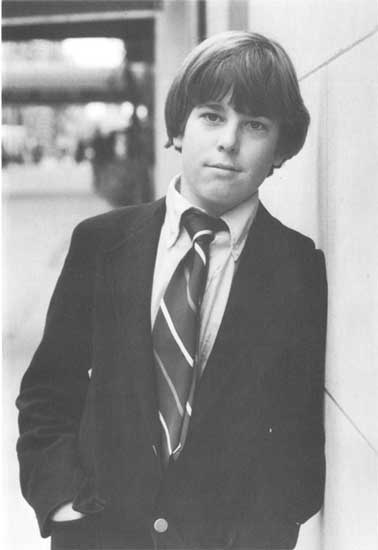Also by Jill Krementz
The Face of South Vietnam
( WITH TEXT BY DEAN BRELIS )
Sweet PeaA Black Girl Growing Up in the Rural South
Words and Their Masters
( WITH TEXT BY ISRAEL SHENKER )
A Very Young Dancer
A Very Young Rider
A Very Young Gymnast
A Very Young Circus Flyer
A Very Young Skater
A Very Young Skier
A Very Young Musician
A Very Young Actress
The Writers Image
The Writers Desk
The Jewish Writer
How It Feels When a Parent Dies
How It Feels When Parents Divorce
How It Feels to Fight for Your Life
How It Feels to Live With a Physical Disability
The Fun of Cooking
Benjy Goes to a Restaurant
Hollys Farm Animals
Jack Goes to the Beach
Jamie Goes on an Airplane
Katherine Goes to Nursery School
Lily Goes to the Playground
Taryn Goes to the Dentist
Zachary Goes to the Zoo
A Visit to Washington, D.C.
Parting the CurtainsInterviews wth Southern Writers
( TEXT BY DANNYE ROMINE POWELL )
THIS IS A BORZOI BOOK
PUBLISHED BY ALFRED A. KNOPF, INC.
Copyright 1982 by Jill Krementz
Cover photographs by Jill Krementz
All rights reserved under International and Pan-American Copyright Conventions. Published in the United States by Alfred A. Knopf, Inc., New York, and simultaneously in Canada by Random House of Canada Limited, Toronto. Distributed by Random House, Inc., New York.
Library of Congress Cataloging-in-Publication Data Krementz, Jill.
How it feels to be adopted.
Summary: Interviews with adopted children and adoptive families about their experiences and feelings concerning adoption.
1. Children, AdoptedUnited StatesInterviews.
2. Foster parentsUnited StatesInterviews.
[1. Adoption] 1. Title.
HV875.K66 1982 362.7340973 82-48011
eISBN: 978-0-307-82029-7
v3.1
For Kurt,
my very dear husband,
with love
Contents
Being adopted is different from not being adopted. As the adopted child grows up, there are special issues which arise, at home and at school, and these issues must be dealt with at various stages. Questions are asked such as: Do I have any brothers and sisters I dont know about? Do my birthparents think about me on my birthday? Are my parents happy they adopted me? Where did my original parents come from? and Why couldnt they keep me?
It becomes quickly apparent, on reading what these nineteen children have to say, that there is a broad range of feelings and attitudes among adopteesdepending on the temperament and personal situation of each child and family. Obviously, every boy and girl has his or her own way of reacting to the realities of adoption, and no one reading this book should conclude that theres a right way to react and a wrong way. My hope is that the variety of responses to the many aspects of adoption will encourage readers to realize that their own reactions are valid too and that confusion, resentment, embarrassment, curiosity, love, and gratitude are all normal and acceptable.
Adoption is certainly more openly acknowledged and discussed today than in the past. Most children now know theyre adopted, whereas fifty years ago many were not told. However, many adoptees still have little information about their birthparents, and exactly how much adoptees should know about their backgrounds is a major issue. Fortunately, in my view, some agencies are now sharing more information with both adoptees and their birthparents. It is understandable that with this new openness, some new problems have surfacedin particular, what to do about searching for birthparents. Three of the children in this book talk about just such an experience. The majority of the children I spoke to, regardless of whether or not they wanted to meet their birthparents, certainly had given the question careful thought. It was something they had pondered long before I came into their lives.
There is a lot of controversy now about whether birth records should be opened to adoptees who want to search. Mostly we have listened to the pros and cons of this subject debated by adoptive parents, directors of agencies, birthparents, psychiatrists, social workers, legislators, adult adoptees, and the media. I hope this book will provide a forum for the young adoptees as well, for their voices have not been heard. But what seems even more important than the to search or not to search question is the right of every adoptee who so wishes to know his or her background. Adoption agencies and those arranging private adoptions must be prepared to give out more detailed information about birthparents than they have in the past, and they should also be willing, whenever possible, to update these records. Certainly this can be done while still protecting the privacy of the birthparents. I hope that adopted children reading this book will find themselves free to explore their own feelings openly, because whatever their questions are, I do believe it helps to talk about them. Most of the young people in this book were expressing their emotions about adoption for the first time, and they all appeared to benefit from, and enjoy, the experience. Its likely that most adoptive children have thought about the issues of adoption far more than their parents realize, and the chance to discuss all of their thoughts seemed to provide a sense of relief and pleasure. Of course, the interviewees, by virtue of the fact that their participation in this project had been left up to them by their adoptive parents, felt free to say what was really on their minds. Finding the families for this book was not easyadoption is still a subject that makes many feel uncomfortable. It was because of the understanding and love of their parents that these children had the courage and security to explore and share their most private feelings. All of the kids, and their families, were shown their finished chapters in case they wanted to change their minds completely and not be in the book. Im happy to say they all stayed, and for that Im deeply grateful.
Jill Krementz
Jake, age thirteen
My parents told me that when they went to the agency to pick me up, my birthmother had dressed me in a very grown-up-looking suit with a little bow tie, even though I was only two and a half months old. It was freezing cold outside, so my father sort of stuffed me inside this big coat he was wearing so Id stay all cozy and warm until we got home.
When I was little I couldnt really understand what being adopted meant. It was kind of hard for me to comprehend that I had another mother somewhere. It finally stuck when I was six or seven. If I adopted a child, Id tell him he was adopted from the beginning, but Id wait a few years to really explain the details.
I know some information about my birthmother, but not that much. Ive heard what she looks like, her approximate age, and where she lived. She was very musical, quite beautiful, and just starting college when I was born. I guess she knew she was doing the right thingthat she couldnt have given me a very good life. I admire her for being able to do it because I think it takes a special vision to be able to see way ahead. I mean, if you had a tiny baby, it would be easy to say, Well, I can handle this. After all, how much room can he take? At the time, I wasnt much bigger than a football, and could have fit into the drawer of a night table.


